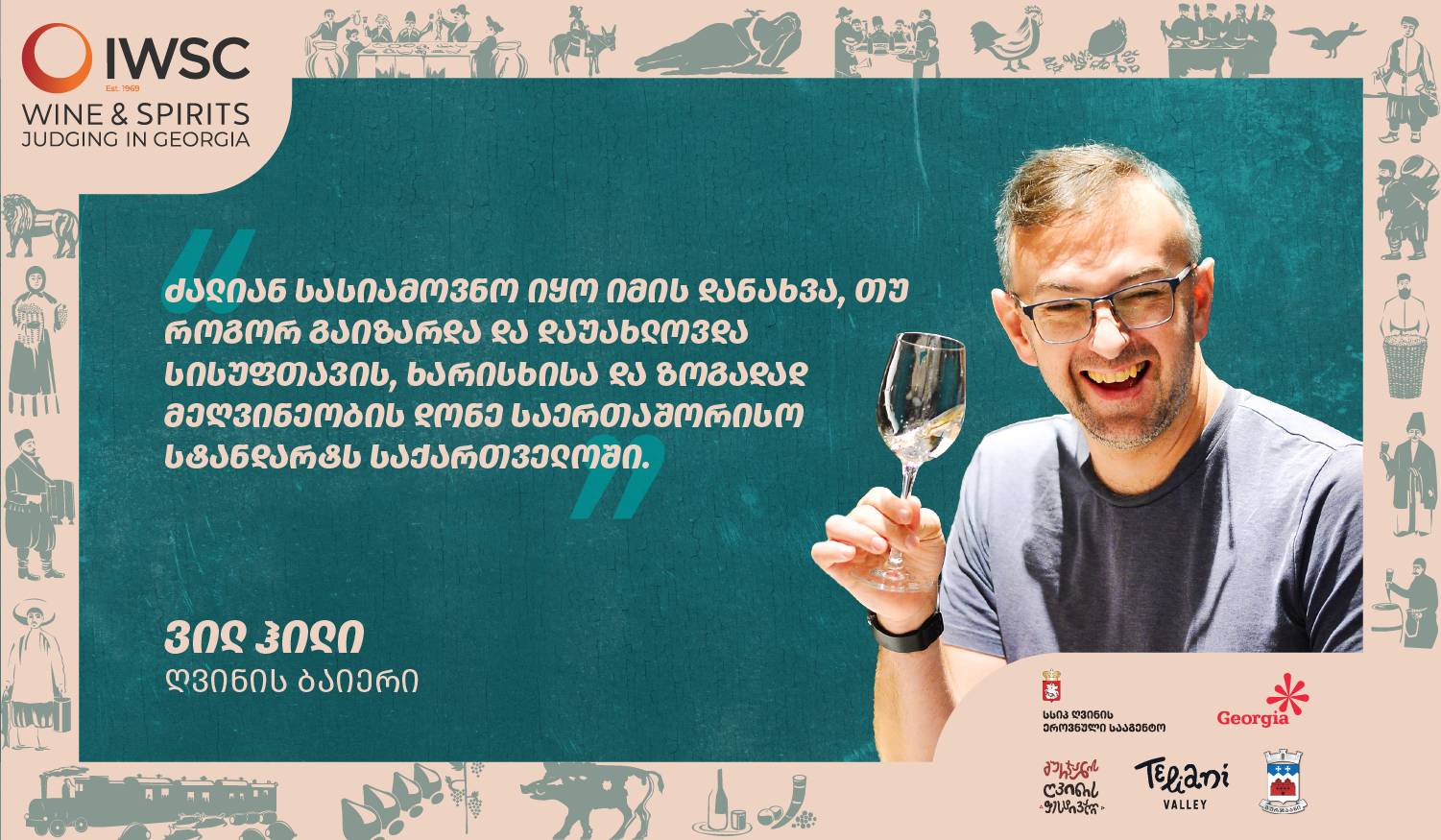
Will Hill: It was nice to see how Georgia has grown and moved closer to the standards of purity, quality, and international winemaking
IWSC 2025 Wine & Spirits Judging in Georgia will be held from November 27 to December 1, 2024 in Tbilisi, in collaboration with the Gurjaani Wine Festival and the National Wine Agency of Georgia.
This year, we will have a particularly impressive international jury.
We spoke to Will Hill, a member of the IWSC International Jury and Director of Wine Procurement at Novel Wines, about the development of the Georgian wine industry, current challenges and future prospects.
You will also be an IWSC judge in Georgia this year. How would you rate last year’s wines and what innovations do you expect this year?
I remember well that last year we were all very impressed. Some of the Georgian wines that participated in the competition still had shortcomings and were not ready for the international market, but overall the results were improved. It was very nice to see how the level of purity, quality and winemaking in general has grown and come closer to international standards in Georgia. I think it would be better if more samples of aged wines or alternative styles such as sparkling wines or sweet wines were submitted to the competition from Georgia.
Are there any new trends and innovations in Georgian winemaking and how much of a chance do they have of influencing the international market?
The biggest trend is probably amber wines. They are still relevant in the Georgian market, it is difficult to determine how much the trend is growing in this area, but this time it is definitely growing. What distinguishes amber wines is the way they are made, so the nuances of winemaking are really expressed. Popular wines such as Kindzmarauli, which are slightly sweetened, are gaining popularity.
In the UK, everyone says they like dry wine, but in reality, everyone wants to find a little sweetness in their wine. This only says one thing – the British market may be able to successfully accept such wines.
Having assessed wines from different regions of the world, are there any new trends or opportunities that you think deserve more recognition on the international stage?
There are two main things to highlight here: low alcohol content and light bottles. Please pour your wines in light bottles! I have been to several countries this year and people have proudly shaken the table with these two-kilogram glass bottles. Considering the principles of sustainability and the final value of the wine, there is no need to use heavy bottles.
As for low-alcohol wines, low alcohol content has a positive effect on the price of the wine, and is also better for your health. If the low alcohol content does not worsen the quality of the wine, then I think it is a very good trend. Climate change plays a big role in balancing alcohol levels, but overall I think it’s good to see the trend moving towards lower alcohol, rather than the typical 15.5% to 16% high alcohol wines.
What steps can the Georgian wine industry take to better appeal to international consumers and expand the market?
Personally, I think agencies like Wines of Georgia UK and other international organizations should hold more competitions, tastings or masterclasses in the countries they are trying to enter. This process not only introduces the wine but the entire culture to the audience and gets people more involved.
At any event, be it for the general public or trade events, even at a retail point of sale, people should be able to buy and taste the wine. Anything that not only spreads the word but also builds a reputation in a more familiar environment will really help.
What are your expectations for the future of Georgian wine and how do you think it will continue to develop in terms of style, quality and global recognition?
I think all these aspects will develop very positively. The expectation is that quality will continue to increase, which does not only mean that already good quality wines will improve even more, but also that low-end, problematic wines will improve and rise to a higher standard. Even ordinary, cheap Georgian wine should always be of good quality, like a good house wine. I think that any style of wine can be made in Georgia, I hope to see more diverse wines in the future…
I would like to remind you that registration for participation in the “IWSC 2025 Wine & Spirits Judging in Georgia” is possible until November 1. This year, winemakers can expect an important novelty: in addition to wine products, it will be possible to submit chacha, brandy and other high-alcohol beverages to the competition.
